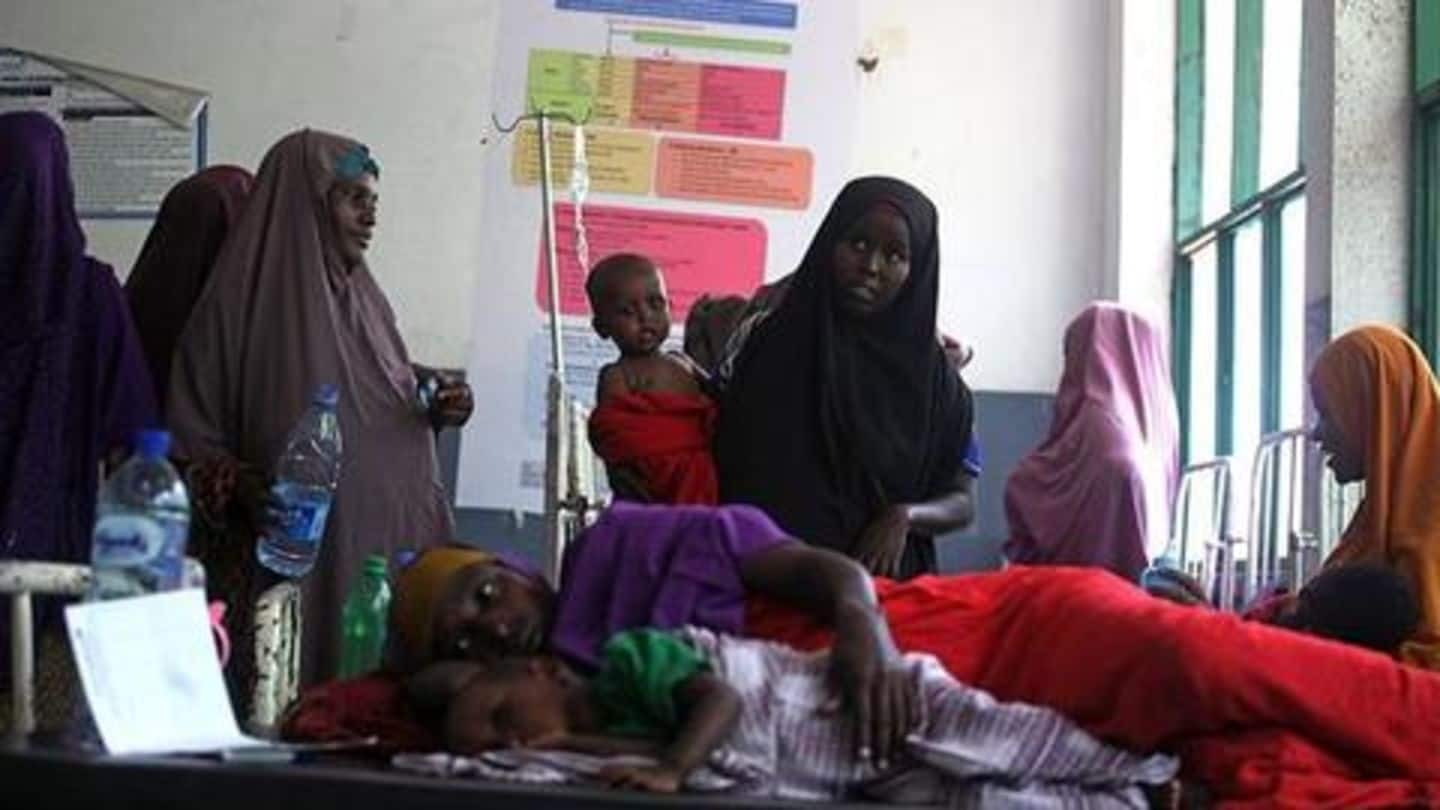
175 dead, over 10,000 affected by cholera outbreak in Nigeria
What's the story
Suspected cholera cases have jumped in northeast Nigeria, where Boko Haram violence has forced tens of thousands of people to seek refuge in crowded camps, the Norwegian Refugee Council (NRC) said yesterday.
The humanitarian group said over 10,000 people have been affected by the fast-spreading cholera outbreak and 175 have died in the northeast states of Adamawa, Borno, and Yobe as of early November.
Reasons
Congestion in camps major cause of outbreak, rains worsening situation
"One of the major causes of the outbreak is the congestion in camps that makes it difficult to provide adequate water, sanitation, and hygiene services," said Janet Cherono, NRC's program manager in Maiduguri (Borno state).
Cherono also blamed the rainy season for worsening the situation, adding, "If more land is not urgently provided for camp decongestion, Nigeria will face another cholera outbreak in 2019."
Information
Regular outbreaks in Nigeria ever since Boko Haram rebellion started
Nigeria has seen regular cholera outbreaks since 2009, when Boko Haram took up arms against the government. More than 1.8 million people have been displaced by the bloody conflict, which has claimed more than 27,000 lives and shattered daily life in the Lake Chad region.
Details
Poor hygiene in crowded camps creating fertile environment for cholera
Maiduguri, the birthplace of Boko Haram, is housing 243,000 displaced people in crowded camps with poor hygiene facilities, creating a fertile environment for cholera to spread, the NRC said.
Cholera is caused by a bacterium transmitted through contaminated food or drinking water. It causes acute diarrhea, with children particularly at risk.
If not treated at an early stage, cholera can also lead to death.
Information
Nigerian President called country's open defecation statistics 'disturbing'
Nigeria suffers from a high-rate of water-borne diseases as a result of dilapidated infrastructure and under-investment. On Thursday, President Muhammadu Buhari declared a "state of emergency" in the country's water sanitation sector, describing the statistics on open defecation and access to piped water as "disturbing".